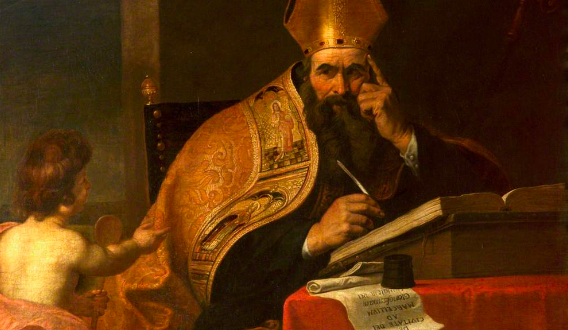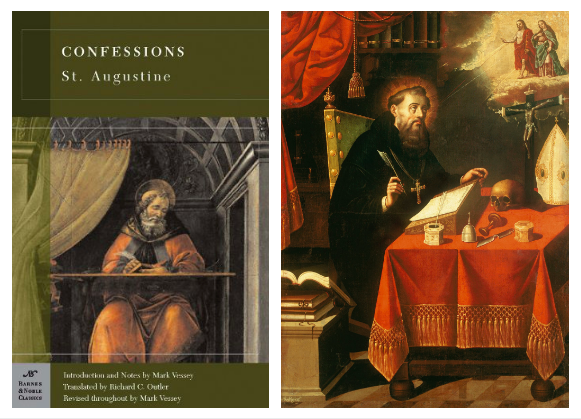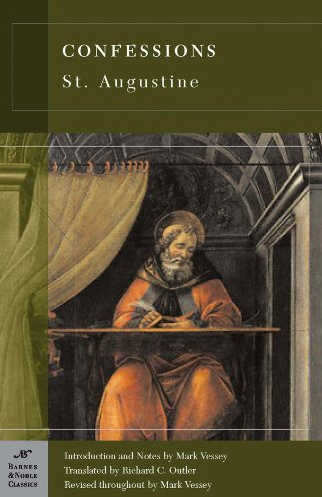“Is not the happy life the thing that all desire, and is there anyone who does not desire it at all?”, asks Saint Augustine (354-430 AD) in Book 10 of Confessions, considered the first autobiography and one of the greatest Christian works ever written.
“How, then, do I seek a happy life,” he asks, “since happiness is not mine till I can rightly say: ‘It is enough. This is it.’”
Written in the last years of the 4th century by a man credited with influencing subsequent Christian thought and theology, Confessions is proof that, over 1500 years later, man’s irrepressible hunger for happiness is one of the defining traits of human existence.
Indeed, written in the form of a lengthy, dramatic prayer to God, Confessions ultimately tells the story of one man’s search for lasting happiness – a modern day equivalent of Gretchen Rubin’s The Happiness Project or Elizabeth Gilbert’s Eat. Pray. Love.
Augustine writes:
“In my public life I was striving after the emptiness of popular fame, going so far as to seek theatrical applause, entering poetic contests, striving for the straw garlands and the vanity of theatricals and intemperate desires.”
He continues:
“But herein lay my sin, that it was not in him [God], but in his creatures – myself and the rest – that I sought for pleasures, honors, and truths. And I fell thereby into sorrows, troubles, and errors.”
Marked as it is by a sophistication and depth of thought that makes it intimidating to tackle, Confessions is a testimony to the folly of looking for fulfillment in the world, and the truth of finding joy in God.
The “happy life” is not a physical, tangible reality:
“…for the happy life is not visible to the eye, since it is not a physical object. Is it the sort of memory we have for numbers? No, for the man who has these in his understanding does not keep striving to attain more. Now we know something about the happy life and therefore we love it, but still we wish to go on striving for it so that we may be happy.”
It’s true that the fulfillment of our desires can make us happy:
“There is, indeed, a sense in which when anyone has his desire he is happy. And then there are some who are happy in hope. These are happy in an inferior degree to those that are actually happy; yet they are better off than those who are happy neither in actuality nor in hope.”
But our desires are subject to change, making happiness elusive:
“Do we remember happiness, then, as we remember joy? It may be so, for I remember my joy even when I am sad, just as I remember a happy life when I am miserable. And I have never, through physical perception, either seen, heard smelled, tasted, or touched my joy. But I have experienced it in my mind when I rejoiced; and the knowledge of it clung to my memory so that I can call it to mind, sometimes with disdain and at other times with longing, depending on the different kinds of things I now remember that I rejoiced in. For I have been bathed with a certain joy even by unclean things, which I now detest and execrate as I call them to mind. At other times, I call to mind with longing good and honest things, which are not any longer near at hand, and I am therefore saddened when I recall my former joy.”
The true happy life comes from rejoicing in God,who embodies joy Himself:
“For there is a joy not granted to the wicked but only to those who worship you thankfully – and this joy you yourself are. The happy life is this – to rejoice to you, in you, and for you. That is it and there is no other. But those who think there is another follow after other joys, and not the true one. But their will is still not moved except by some image or shadow of joy.”
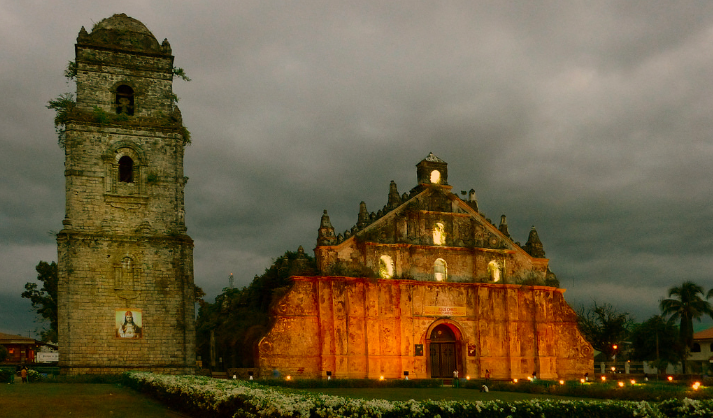
For no amount of earthly pleasure is capable of producing a lasting joy:
“‘Suppose we are immortal and live in the enjoyment of perpetual bodily pleasure, and that without any fear of losing it – why, then, should we not be happy, or why should we search for anything else?’ I did not know that this was in fact the root of my misery: that I was so fallen and blinded that I could not discern the light of virtue and of beauty which must be embraced for its own sake, which the eye of flesh cannot see, and only the inner vision can.”
That’s not to say there isn’t beauty in earthly pleasures:
“Now there is a splendor in all beautiful bodies, and in gold and silver and all things. The sense of touch has its own power to please and the other senses find their proper objects in physical sensation. Worldly honor also has its own glory, and so do the powers to command and to overcome: and from these there springs up the desire for revenge.”
Only that we shouldn’t abandon God to worship them:
“Yet, in seeking these pleasures, we must not depart from you, lord, nor deviate from your law.”
Because God is the “highest and best good”, the source of all goodness:
“The life which we live here has its own peculiar attractiveness because it has a certain measure of decorum of its own and a harmony with all these inferior values. The bond of human friendship has a sweetness of its own, binding many souls together as one. Yet because of these values, sin is committed, because we have an inordinate reference for these goods of a lower order and neglect the better and the higher good – neglecting you, our lord god, and your truth and your law. For these inferior values have their delights, but not at all equal to my god, who made them all. For in him do the righteous delight and he is the sweetness of the upright in heart.”
And we can only find peace and contentment in Him:
“Rest in him and you shall be at rest…[t]he good that you love is from him, and insofar as it is also for him, it is both good and pleasant. But it will rightly be turned to bitterness if whatever comes from him is not rightly loved and if he is deserted for the love of the creature. Why then will you wander farther and farther in these difficult and toilsome ways? There is no rest where you seek it. Seek what you seek; but remember that it is not where you seek it. You seek for a blessed life in the land of death. It is not there. For how can there be a blessed life where life itself is not?”
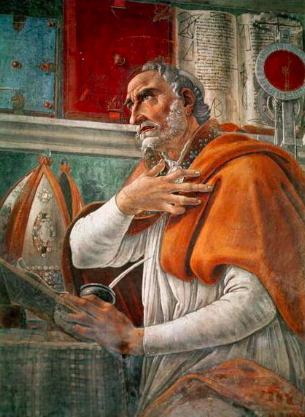
In other words, apart from God, we remain unstable:
“For our stability, when it is in you, is stability indeed; but when it is in ourselves, then it is all unstable. Our good lives forever with you, and when we turn from you with a version, we fall into our own perversion.”
And lacking in joy:
“For wherever the human soul turns itself, unless toward you [God], it is enmeshed in sorrows, even though it is surrounded by beautiful things outside you and outside itself.”
Simply put:
“Restless is our heart until it comes to rest in you.”
Confessions is a lengthy, dense read, but one that is full of timeless insights on human nature’s struggle with sin, doubt, lust and fear, in addition to offering philosophical musings on the nature of time, mind, and memory.
Augustine’s intensity of emotion and elegance of expression are poignantly felt as he confesses his “past wickedness and carnal corruptions” from his youth into adulthood, ending in the culmination of his famed conversion to Christianity in a garden in Milan, a moment captured in numerous works of art to this day.
Simliar posts:
- The Dalai Lama and Archbishop Desmond Tutu on the Four Qualities of the Mind that Lead to Joyful Living
- Paulo Coelho on Taking Risks and Embracing Life’s Magic Moments
- Claiming Responsibility for Our Lives: Thomas Merton on Discovering Meaning and Purpose Within
- The Great Persian Poet Rumi on Spreading Your Wings
- Maria Shriver on the Courage to Recreate Our Lives

